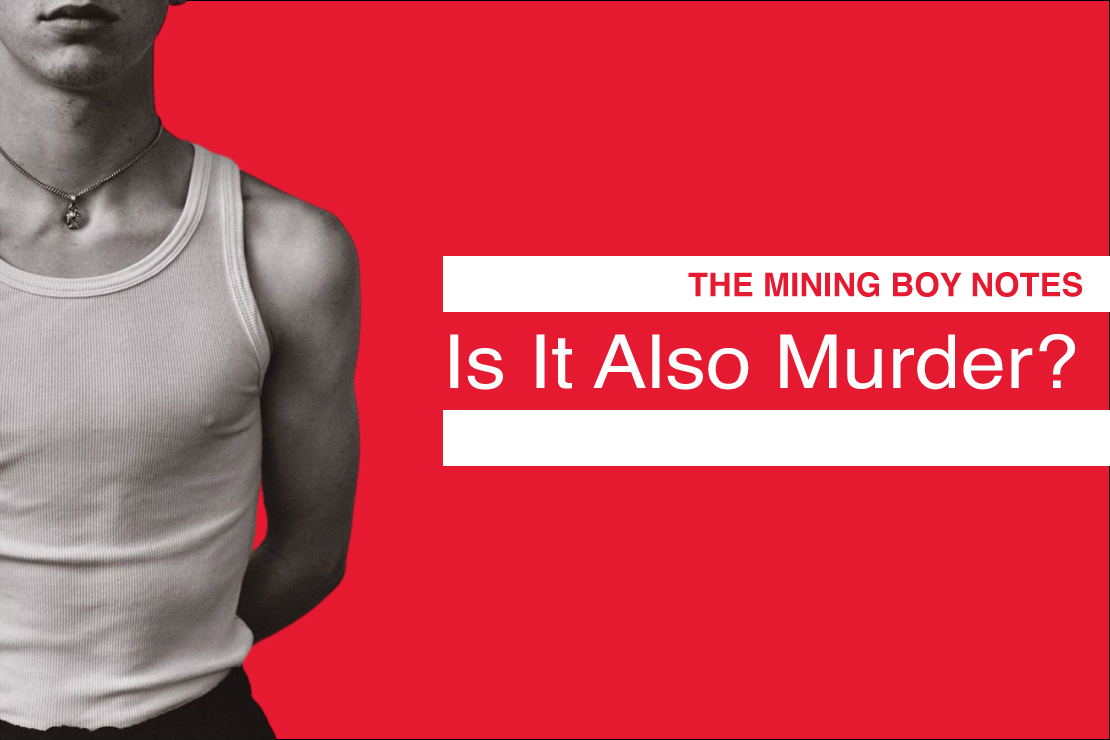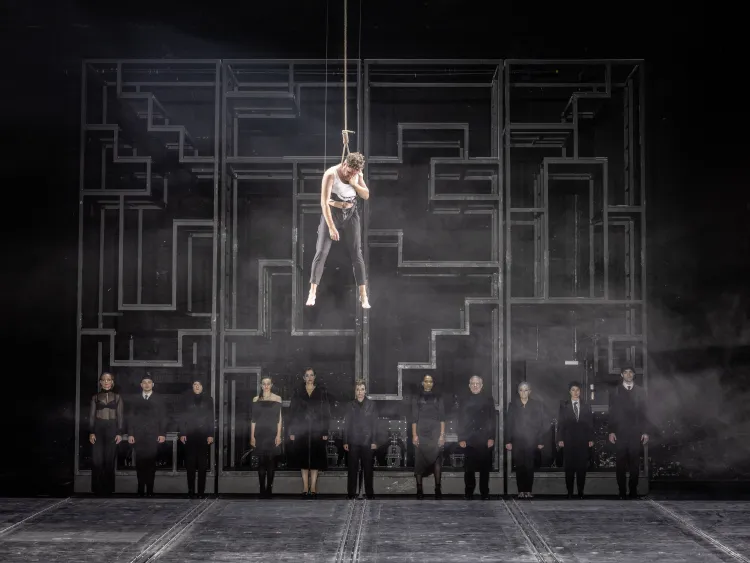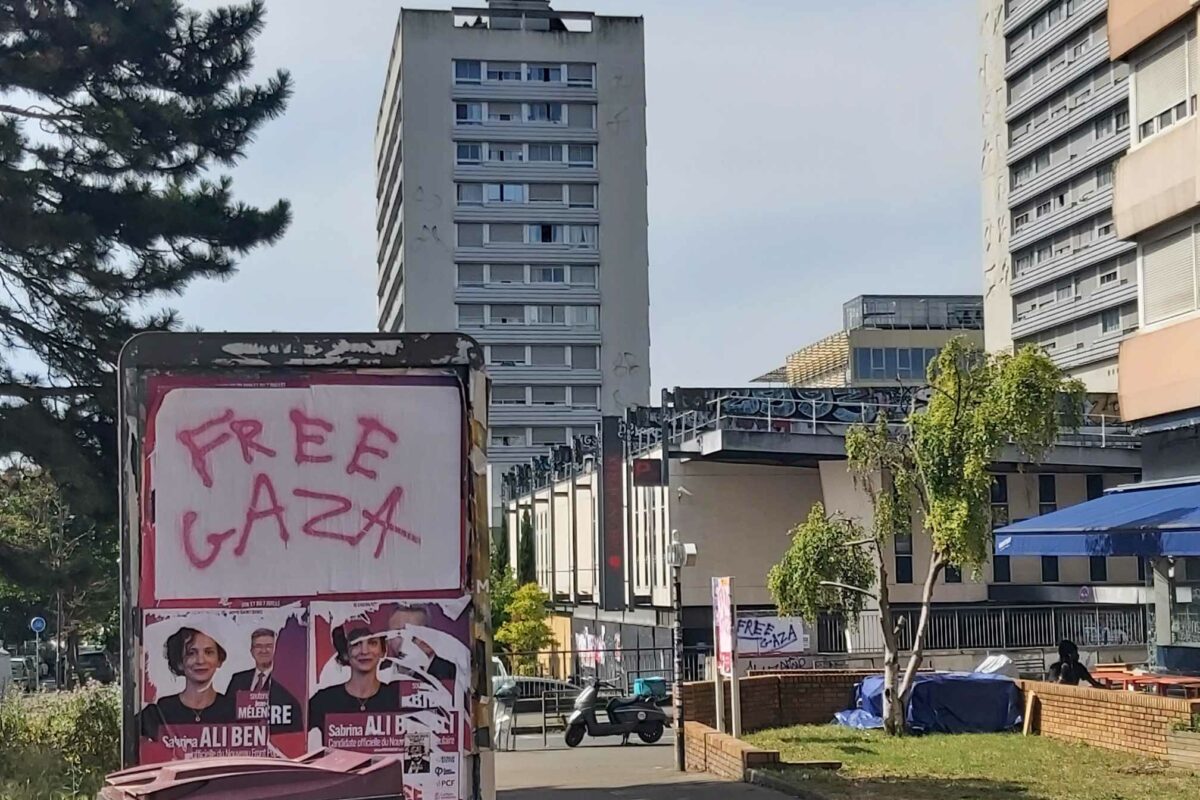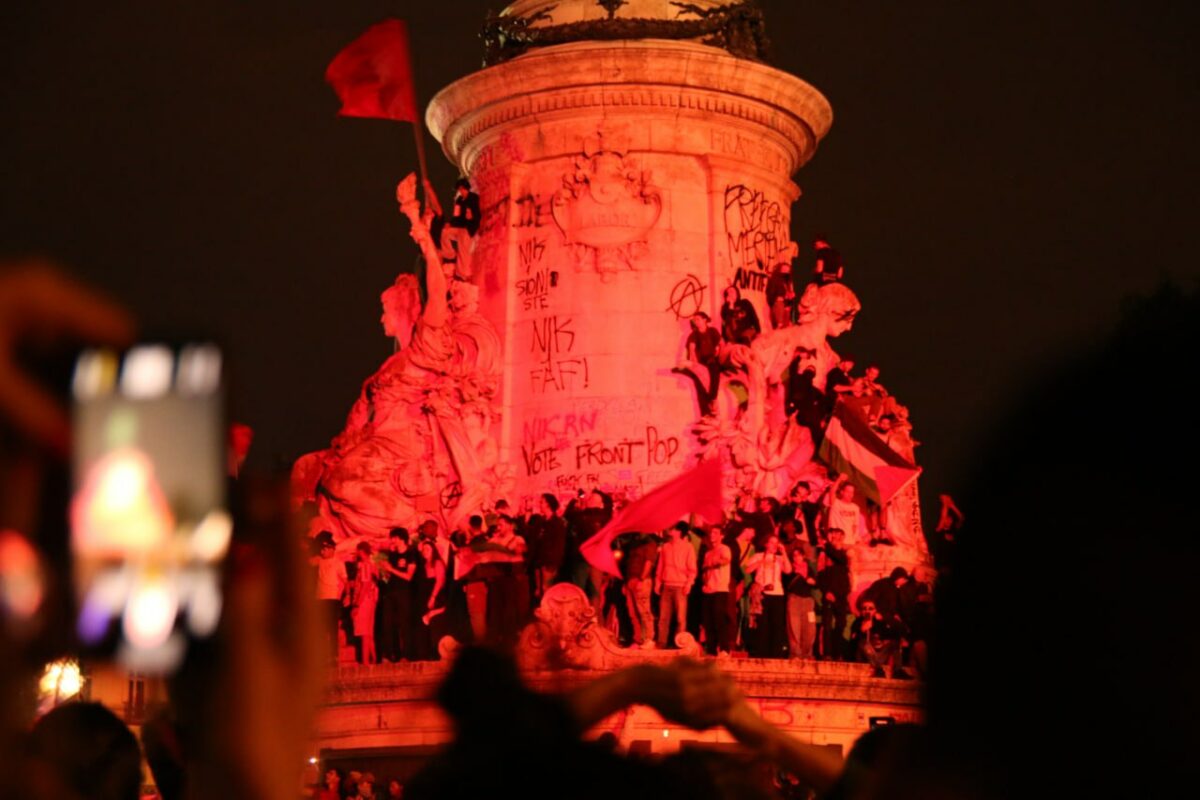Although the fascists were prevented from getting a majority in the parliamentary elections, Le Pen’s Rassemblement National (RN) still managed to win many more seats than ever before. How do you rate the election result?
It is an important, short-term, victory for working people and for the Left. Four parties of the Left (France in Revolt, the Socialist Party, the Greens and the Communist Party) united into the Nouveau Front Populaire (NFP). They stopped the establishment of a fascist government which was highly probable. Millions of people in the country, especially Muslims, lesbians and gays, are losing less sleep this week.
Even more important than the result is the way it was achieved. We saw the most dynamic election campaign for at least forty years, on a radical programme. Tens of thousands of new activists joined the left France Insoumise (France in Revolt – or FI), and many thousands joined other left organizations. Trade unions, charities, academic associations, university councils, singers, artists, scientists, publishers, athletes, all got involved. There were hundreds of demonstrations, and innumerable other events. Keeping this mass of people organized and mobilized is one of the key tasks of the coming months.
In parliament, the far right is stronger than it has ever been, and whole sections of the traditional right are considering working with them. Edouard Philippe, ex- Prime Minister and an important Macronist leader, recently had dinner with Marine Le Pen. «It was because I didn’t know her very well», he said! Bosses have been rushing to meet with her and get in her good books in case the RN takes over.
So the fascist danger is far from over. But the movement which pushed it back could do much more, encouraged by this initial victory.
Will Mélenchon now become Prime Minister and what would that mean from your perspective?
One of the signs of a deep crisis is the long delay in the appointment of a Prime Minister. Traditionally, the president appoints a PM from the parliamentary group with the most seats. Macron has so far refused to do this. In a “letter to the French people” released 10th July he explains that he wants a coalition between Macronists, the Right and sections of the ‘soft’ Left. It is not at all certain he has the numbers necessary, and his own group of Macronite MPs is in the process of splintering. Mélenchon has denounced Macron’s attempt at “a return to a royal right of veto over the decisions of universal suffrage”.
Meanwhile the left alliance is negotiating to decide on whose name to propose as Prime Minister. The problem is a new one and there is no generally accepted method. The France Insoumise (FI), as the biggest component of the alliance (74 MPs), feels it is fair that it should be an FI person. The Socialist Party (59 MPs) and the Greens (28) do not agree that it should be an FI person. But they would no doubt accept FI ministers in other key posts. For Jean-Luc Mélenchon specifically, his solid positions on Palestine; and that he represents an open-ended radical break with the status quo – have meant he is the victim of endless smear campaigns. Sections of the PS and the Greens have cheerfully supported these. It is therefore most unlikely that he will be proposed as Prime Minister.
The NFP’s election campaign was carried by a strong dynamic and there were large anti-fascist mobilisations. How do you describe the current mood in the country and do you expect the wave of protests to continue?
There has indeed been more anti-fascist activity this last month than in the previous five years, and there was no real distinction between an anti-fascist mobilization and a campaign to vote for the radical programme of the united Left. That includes 150 reforms – including stopping arming Israel, raising wages and benefits, and reining in violent police. Right now, there are calls to set up vigilance committees or other kinds of open New Popular Front committees in every town. Several places have already done this. A march on Matignon (the Prime Minister’s residence) if Macron refuses to appoint a left PM has also been suggested. The leader of the biggest of the combative trade union federation – the CGT – insisted Macron must “respect the result at the polls and appoint a new government around the programme of the NFP”. The CGT railway workers federation has called for rallies in front of parliament and in front of all regional government HQs (préfectures) on 18th July, the day parliament reopens. ATTAC and other organizations support the call. Meanwhile seven of the eight major trade unions signed a declaration demanding progress for wages and conditions, and in particular the withdrawal of a recent vicious attack on unemployment benefits.
It is impossible to know how big the protests will be in July. In any case, the present political crisis will last many months. The French Constitution forbids repeat parliamentary elections in the next 12 months, even if the president resigns and a new president is elected.
France is now facing a difficult time forming a government. What are the options and how likely do you think they are?
There could be a minority left government. Without passing any new legislation, several of the key measures of the NPF programme could be implemented (raising the minimum wage and public sector wages, disbanding the most violent police units etc). In addition, if a NPF government could present in parliament, say, a law to reverse the vicious attacks on retirement pensions which went through last year. Those attacks remain overwhelmingly unpopular in the entire population, parties would be obliged to publicly support or oppose. The Rassemblement National (RN), pretended to oppose the attacks on pensions, and would be particularly under pressure. If there is a minority Left government, mass mobilization would be crucial. Indeed, in general, the more parliament is paralyzed, the more mass action is important.
The second option is that there could be a (disastrous) “national unity” coalition bringing together Macronites, right-wingers and those of the Left who could be tempted, or bribed by important jobs. This would probably not have an overall majority. If it lasted it would lead to deep disappointment, and no doubt a far-right government at the next elections.
Finally, it is possible for Macron to appoint “experts” – that is, bourgeois experts – to govern the country. In Italy they at one point chose the director of the national bank. It goes without saying that such a government would not be on the side of working people.
In every one of these scenarios, resistance from the workers’ movement and on the streets is the central element.
The parliamentary elections were a setback for the RN. Nevertheless, the strategy of “normalisation” seems to be working. How strong is the RN?
The RN has been very successful in persuading people that it has left its fascist past behind it. Last year they were even accepted at a demonstration against anti-semitism, and they have declared their aim is to defend Jews against left anti-semitism! In recent weeks, however, the anti-fascist mobilization was able to put on the front pages lists of RN MPs who had made racist or anti-semitic declarations, and a couple of RN candidates were sacked for this (one of them had been photographed wearing a Nazi cap).
The RN have been helped by the lack of general understanding on the Left that fighting for working class demands and presenting a Left alternative is only part of what is needed to push back the fascists. A national mass, long-term campaign of education and harassment specifically aimed at the RN is necessary.
For the moment, the RN is immeasurably stronger inside parliament than outside. With up to 13 million votes in some elections, it is nevertheless incapable of organizing mass demonstrations on the streets. In very many towns it possesses almost no party structure. We need to make it impossible for it to build one.
In addition to building up parliamentary power, the fascists within the AfD in Germany are also focusing on the fight for the streets and repeatedly support right-wing mobilisations. What is the situation in France?
The RN has avoided this, as part of its detoxification strategy. In some towns however, smaller fascist groups have been demonstrating. Over 600 open nazis demonstrated in Paris two months ago, two or three hundred in Lyon last December. The RN avoids official links with these groups, for the time being.
You are a revolutionary and active in France Insoumise (FI). Is there anything like revolutionary alliances or organised currents of revolutionary forces within FI?
The FI is a left reformist organization which is not a political party as such. You do not become a member, but a supporter. Delegate conferences are often organized in innovative ways including choosing delegates by lottery. There are advantages and disadvantages to all this. But for Marxists the advantage is that there is nothing to stop you selling a newspaper, holding discussion meetings and so on. I think there is space for a “Marxistes insoumis” current, and that it is sorely needed. The mainstream of FI thinking is “for a citizens’ revolution”. On this basis it has got nine million votes, and has formed a large new reformist movement with a solid educational and cadre building programme, summer schools, and so on. Now, we Marxists want a worker’s revolution, because it is where the work is done that the power to overthrow capital can be found. However, in a situation where the vast majority of radicalized workers have not the slightest idea of the difference between a workers’ revolution and a citizens’ revolution, we Marxists need to defend our ideas in broad radical circles. We cannot stay outside in the cold because we don’t like talking to reformists.
There are a couple of revolutionary groups more or less inside the FI, of a couple of hundred members each at most. The New Anti-capitalist Party around Olivier Besancenot, with a couple of thousand activists, stood its own candidate rather than supporting Mélenchon in the presidential elections of 2022 (they got 0.7% of the vote). But last month they joined the New Popular Front and are making a useful contribution.
Socialists in Germany often look somewhat jealously at the comparatively high number of strikes and the militancy of the trade union movement in France. At the same time, the level of union organisation is very low and also the French labour movement has been in a state of defence for a long time. How do you assess the situation of the class struggle and the strength of the trade unions?
For thirty years, there have been regular mass strikes and protests against neo-liberal reforms. These have occasionally won (as in the defeat of a new work kind of work contract for young people, the “contrat prémière embauche”). They have often lost or ended in a draw. The net result is that the neo-liberal reforms have moved considerably more slowly than in many other rich countries. These movements have shown that there is widespread political class consciousness among French workers. Millions of people who were not personally affected got involved in protests against raising the retirement age or against rotten contracts for young people. This class consciousness, mixed with the great difficulty of winning (especially because of the braking activity of national union leaders), has allowed the building of a mass left reformist movement, the FI, which aims at very radical change (“a citizens’ revolution”) but puts elections at the centre of its strategy.
In Germany, the AfD has managed to make inroads into the organised labour movement. In the European elections, trade unionists even voted above average in favour of the Nazi party. What is it like in France? Does the RN have a base in the trade unions and among strikers?
Several of the main trade unions expel any RN activist from the union. But of course many union members or, more likely, sympathizers, still vote RN. Twenty-two percent of those who said they were supporters of the CGT voted for Marine Le Pen in 2022, at the first round of the presidentials (as opposed to 23% of the general population); and 24% of sympathisers of Force Ouvrière, which is a less combative confederation.
In some regions the union activists are good at regular anti-fascist education and discussion.
In Germany, the image of the classic RN voter is that of a socially marginalised protest voter from the traditional working class milieu in the former industrial regions or the neglected provinces. Is this image correct? Or to put it another way: What is the social base of the RN?
The RN has succeeded in broadening its social base. But still, older people living in small towns are the centre of its electorate. Twenty per cent of those who voted RN are under 35 (as are 33% of those who voted Left). Twenty five per cent of RN voters live in the countryside (vs. 17% of Left voters). Twenty eight per cent of RN voters are retired (vs. 24% of Left voters). Nine per cent of RN voters live in Paris or its suburbs (vs. 21% of Left voters). The fact of living in neglected provinces then certainly reinforces the RN vote. But the racist aspect is very important – people living in multiethnic places vote much less for the RN. The RN seem to be able to win the votes of many living in very white towns who are convinced that immigration is a huge danger.
The left achieved impressive successes in the elections, particularly in the multi-ethnic working-class suburbs of the major cities. Obviously, it has managed to successfully combine the fight for social issues and against racism. This was by no means always the case. For a long time, the French left had an ambivalent relationship in particular with anti-Muslim racism. In Germany, the left has been discussing for years what significance anti-racism should have in times of a shift to the right; and whether it is not alienating the left from parts of its social base. How do you view this question in light of the French experience? And how has it been possible to change the left’s attitude towards anti-racism in France?
The Left and even the far left in France were for many years supremely uninterested in fighting Islamophobia, many of them claiming that it did not exist and had been invented by fundamentalists hoping to infect French society. Whole sections of the feminist movement and of the left supported Islamophobia. At the worst point, fifteen or twenty years ago, women wearing hijabs were screamed at by feminists on women’s rights marches (“Your mother should have aborted you!”). When a law was passed in 2010, banning the wearing of niqab face veils in the streets, the front page of the New Anti-capitalist Party newspaper referred to niqab-wearing women as “birds of death”.
Left islamophobia is still a real thing, and influences significant sections of activists. But it has been pushed back a lot, by the mobilizations of Muslims and their allies, patiently, over thirty years. A key moment came when Jean-Luc Mélenchon, leader of the FI was working with French-North African leaders and understood much more about how Islamophobia works. The FI has brought the fight against Islamophobia into the mainstream of French left politics. The NPF programme is, I think, the first mainstream programme to include the fight against Islamophobia. Not only that, but Jean-Luc Mélenchon made the question a central point at his biggest mass meeting, in Montpellier last month.
The leader of the Communist Party, Fabien Roussel, and other Communist leaders, have in recent years been suggesting that it is necessary to reinforce pride in (White) French culture. Presumably hoping that it will attract White voters feeling under pressure. So they have been loudly declaring how red wine and steak are important to French identity, or suggesting the fight for Palestine is “communitarianism” etc. These are tentative steps to being soft on racism, and in my opinion are to be condemned.
Any final comments?
The capitalists’ way of governing France no longer works. The traditional right and traditional left parties have massively reduced their social base after ruling over neo-liberal governments which ruined many workers’ lives. Now Macronism, the “radical centre” has lost the elections and is much weakened. More and more the choice is between fascism and the radical left. The election campaign and the idea that it is possible to raise wages, retire younger, tax the rich and rebuild public services has inspired millions. In the medium term, the most important battles will be fought outside parliament, but right now, pushing for a NPF government which institutes urgent measures to reduce misery and oppression is the essential next step.
This interview first appeared in German on marx21. Reproduced with permission




